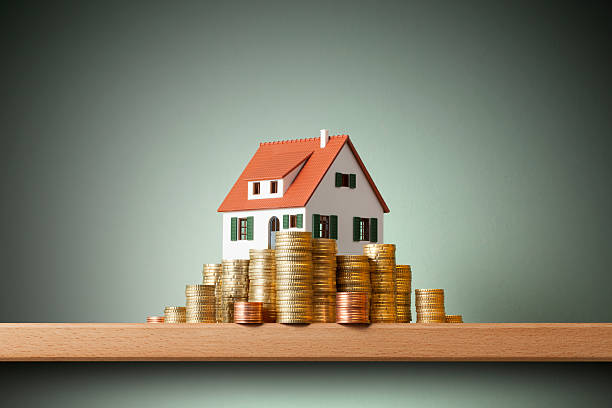By
|
Getting your Trinity Audio player ready...
|
As the title suggests, when you sell a property you need to pay a tax on the profits you earn. This is called capital gains tax on property. You will be taxed on the profits you make which are called capital gains. Capital gains can be classified as short term or long term. It is taxed differently for short and long term. Long term capital gain tax on sale of property is taxed at 20% plus a cess of 3% if the sale fulfils certain conditions. For most people their home is most likely the biggest purchase of their life. This purchase thus becomes a asset subject to capital gains tax on property, when you sell your house.
There are ways to avoid paying capital gain tax on sale of property in India. It is important to time the sale of your property properly to avoid paying a hefty tax. It is applicable on both inherited and gifted property as well. Read on to know how to avoid paying a significant amount of tax when you sell your property.
How is capital gains tax calculated on sale of property?

Capital gains in absolutely simple terms are the profits (capital) gained (gains) through the sale of a capital asset. In this case the capital asset is your property. There are 2 main types of capital gains. Capital gains tax on property is calculated differently for each of these two types.
The two types of capital gains are long term capital gains and short term capital gains. Long term capital gains are gains on capital assets that are held for more than 36 months. Short term is tax on the profits held for a shorter duration. This duration is a period of less than 36 months.
Calculation of tax is dependent upon the type of capital gain.
- Calculation of tax on short-term capital gain tax on property is simpler than that on long-term. For short-term gains, the gain is added to the total income and then the Income Tax is calculated based on the tax bracket that you fall in.
- Calculation of tax on long-term capital gain is slightly trickier. Since one holds long-term capital assets for longer periods, inflation is also added in while computing tax on long-term capital gains.
Tax calculator for capital gains tax on property
There are many online tools available that can help you calculate capital gain tax on sale of property in India. A capital gains tax calculator requires the following information.
- Sale price
- Purchase price.
- Details of the purchase such as the date, month and year of the purchase.
- Sale details such as the date, month and year of sale.
- Investment details, if any. The capital gains could have been invested in shares, debt funds, equity funds, real estate, gold or fixed maturity plans.
Once you enter this information, the calculator will be able to give you details on the type of investment and type of gain. You can use this information to calculate the same.
How to save on capital gains tax on property?
In India, under Section 54 of the Income Tax Act, 1961 exempts long term capital gains. As per this rule, the government has exempted long term capital gain tax from taxation. This rule is applicable for individuals and Hindu Undivided Families on the sale of a house property. If it meets certain conditions. These are:
- The capital gains are used to purchase or construct another house.
- New house is purchased one year before or two years after the sale of the old house.
- The new house is constructed within 3 years after the sale of the old house.
- Only one additional house property is purchased / constructed.
- The property being bought / developed is within India’s national borders.
- You don’t sell the new house for 3 years after taking possession of it.
- If the cost of the new property is lesser than the sale amount, the exemption then only applies proportionately. The remaining money can be re-invested under Section 54EC in under 6 months.
Capital gains tax formula for calculation
Depending on the two types of capital gains, there are two different formulae for calculating these taxes.
Formula for Short term capital gains tax on property
Short-term capital gain= full value consideration – (cost of acquisition + cost of improvement + cost of transfer).
Formula for Long term capital gains tax
Long-term capital gain = full value of consideration received or accruing – (indexed cost of acquisition + indexed cost of improvement + cost of transfer), where:
Indexed cost of acquisition = cost of acquisition x cost inflation index of the year of transfer/cost inflation index of the year of acquisition.
Indexed cost of improvement = cost of improvement x cost inflation index of the year of transfer/cost inflation index of the year of improvement.
Capital gains tax on property is your duty
A flat or an apartment is ultimately a place for us to call our home. Safeguarding this place legally by paying the capital gains tax on property is our duty. We hope this blog will help you understand how to calculate this tax and why it is so important. You can also check out our other blogs to make the process of buying property easier.
FAQs
In case of short-term capital gain, capital gain = final sale price – (the cost of acquisition + house improvement cost + transfer cost).
In case of long-term, capital gain = final sale price – (transfer cost + indexed acquisition cost + indexed house improvement cost).
If you sell a property that was gifted to you, or that you have inherited, you will still be liable to pay capital gains tax on it. The cost of purchase here is calculated on the basis of the cost to the previous owner, indexed to the year of purchase.
Leave a comment







